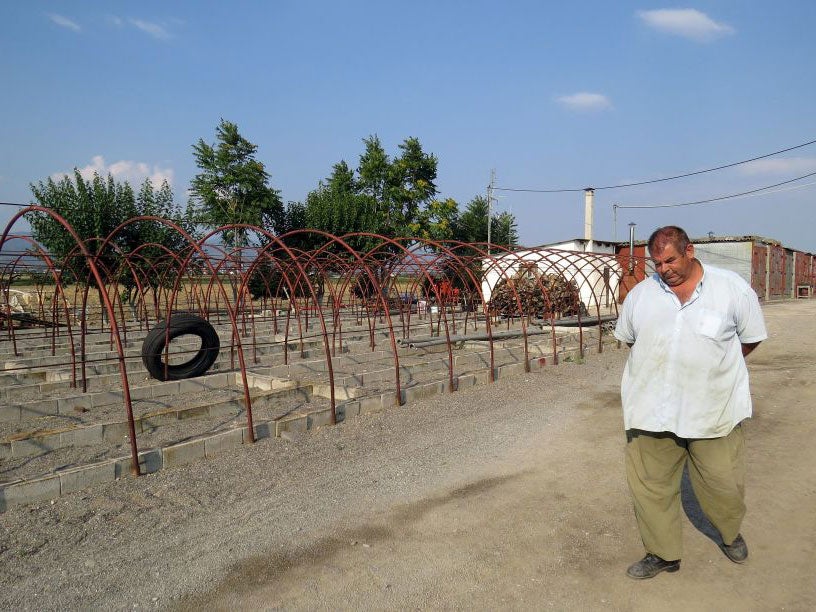Barter booms in cash-strapped rural Greece for the first time since Nazi occupation
A rising number of Greeks in rural areas are resorting to swapping goods and services

The barter economy is growing in Greece after a bank shutdown has left many struggling to maintain businesses with limited cash.
A rising number of Greeks in rural areas are resorting to swapping goods and services as they struggle to keep businesses going under tight government capital controls, according to reports.
But even those facilitating the barter economy fear that it harks back to the Nazi occupation.
Christos Stamatis started the website Mermix three months ago to link farmers wanting to share heavy machinery in exchange for cash or other goods. "A barter economy is something that we shouldn't aspire to and should be a thing of the past – the last time we had it on a large scale was when we were under occupation," he told Reuters, referring to the Nazi occupation of Greece in the Second World War.
The Greek government shut the banks on June 28 in the heat of the Greek debt crisis, fearing a run on banks. After they reopened on July 20, strict controls on withdrawals were put in place to stop cash from trickling out the system.
Greeks are prevented from taking more than €60 a day from their accounts and services in branches are limited to basic processes, like making domestic payments.
In rural areas some farmers have admitted to going to the bank every day, but still not having enough money to pay employees and suppliers. One farmer said when he rented a field this month, he agreed to pay with part of his clover production.
"I've begun bartering in some forms - it existed in the past but now it is growing... Times have become really tough, and friends and relatives help each other out," said Mimis Tsakanikas, a cotton farmer.
It is difficult to quantify the scale of the barter economy growing in rural Greece, but online forums and anecdotal evidence suggest that it is surging.
One barter website started three years ago said the number of users and the volume of transactions have doubled since the banks closed in June.
"Before capital controls, we were reaching out to companies to encourage them to register," says Yiannis Deliyiannis, chief executive of Tradenow. "Now companies themselves are getting in touch with us to get registered."
Often the deals are small, such as the car repair shop that swapped tyres for a shower cubicle, a or the burglar alarm shop that offered its services in return for paper and advertising. One cattle herder told Reuters that he sold clover for animal feed worth 2000 euros to a farmer who did not have cash and paid him in wheat.
Barter is not illegal in Greece as long as each trade is covered by legal documents, but the finance minister is closely monitoring the growing trend.
Subscribe to Independent Premium to bookmark this article
Want to bookmark your favourite articles and stories to read or reference later? Start your Independent Premium subscription today.

Join our commenting forum
Join thought-provoking conversations, follow other Independent readers and see their replies